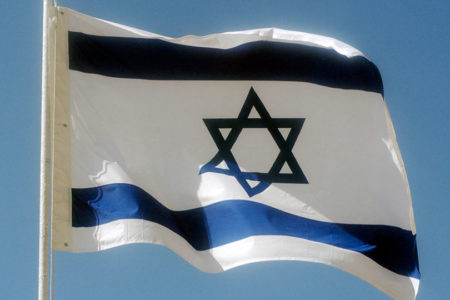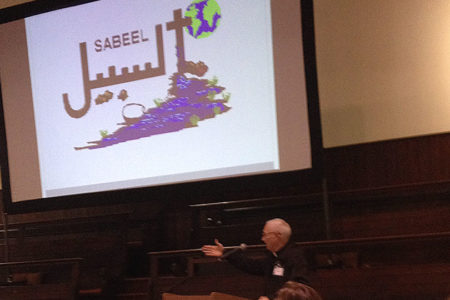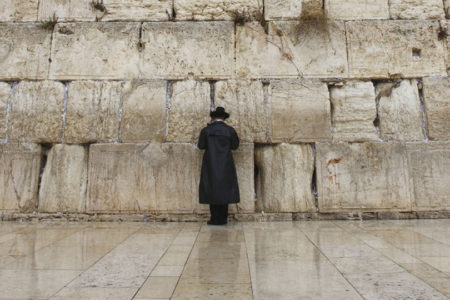Top 5 Flaws of the Israel Apartheid Movement
This year campuses across America held their 10th annual Israeli Apartheid Week (IAW). As the name suggests, the protest organizers aim to equate the government of Israel with South Africa’s former apartheid regime. The protesters want to paint Israel as a racist, bigoted country that deserves international condemnation. By successfully creating a link between the South African system of apartheid and Israel’s treatment of its Arab citizens, the goal is for Israel to lose all legitimacy in the eyes of the world.
Just like the anti-apartheid movements in the ’70s and ’80s helped bring down the forced system of racial domination in South Africa, the organizers of IAW hope their movement can bring down the nation of Israel.
Modeling the former anti-apartheid strategies, the IAW groups are using boycotts, divestment, sanctions, and synchronized protests to isolate the Jewish state on all fronts.
The Israel apartheid analogy has now gone mainstream—gaining especially wide acceptance in the academic community. In 2006, former President Jimmy Carter titled his best-selling book Palestine: Peace Not Apartheid. Anti-Israel signs, apparel, literature, and documentaries run with the semantics of the apartheid comparison: “Zionism is racism,” “Tear down the wall,” and “Wrong for South Africans, wrong for Palestinians.”
There is one obvious problem, however. Israel is not an apartheid state. To accuse it of such requires a real imaginative stretch. Here are the top five reasons why the apartheid analogy is fatally flawed:
(1) Equality. During South Africa’s apartheid system, the majority black population was oppressed and persecuted by the minority whites. In Israel, all citizens—including Arab citizens—are equal before the law, regardless of their race, religion, or minority status.
Of all the countries in the Middle East, Israel is the only true democracy with full freedom for its citizens.
(2) Citizenship. In the 1970s in South Africa, all nonwhites were stripped of their South African citizenship. In 1948, Israel did the opposite. When the dust settled from Israel’s war of independence, Israel gave full citizenship to the Arabs who remained in Israel and did not flee.
They did this even though it was a defensive war. Today 20 percent of the Israeli population is Arab. That’s a million and a half Arab citizens living in Israel and enjoying all the same rights as Israeli Jews.
(3) Democracy. In South Africa, non-whites were not allowed to be in government or even vote. In Israel, Arabs have been represented since the very first Knesset.
Israeli Arabs vote and have been elected to every level of local and national office, including appointments to the Israeli Supreme Court and government minister positions.
(4) Freedom. The South African apartheid regime strictly regulated the lives of non-whites with a host of separation laws. Black South Africans were confined to Bantustans, defined labor areas that they were not permitted to leave.
Israel, in contrast, has extensive antidiscrimination laws. Israeli Arabs work in all sectors, attend universities, and open businesses. While much of the Arab population lives in concentrated Arab municipalities in Israel, this is an informal segregation as a matter of choice. For South African blacks, segregation was a matter of force.
(5) Security. The security fence separating Israel from the West Bank is often denigrated as the “apartheid wall.” During Israeli Apartheid Week, a common tactic on campuses is to build mock “apartheid walls” at protest sites.
Admittedly, Israel must strictly enforce border control between Israel, Gaza, and the West Bank. However, this restriction is due to legitimate security concerns and not racism. The fence is credited for a drastic reduction in the number of mass-murder attacks carried out in Israel after reaching a peak in the second intifada.
In South Africa, racism formed the basis of segregation, not terrorism. Blacks living under South African apartheid did not seek the destruction of South Africa, only the regime of apartheid.
Perhaps the best proof that Israel is not an apartheid regime is the fact that the vast majority of Israeli Arabs want to retain their Israeli citizenship. Israeli Arabs both privately and publicly say they would not want to leave Israel and move to a Palestinian state should one be created.
When former Prime Minister Ehud Olmert suggested in 2007 that he would hand over Arab neighborhoods in East Jerusalem to the Palestinian Authority, the Arabs in Jerusalem rose up in protest.
Nabil Gheit, an Arab mayor of one of these neighborhoods, said, “If there was a referendum here, no one would vote to join the Palestinian Authority (PA). We will not accept it. There would be another intifada [uprising] to defend ourselves from the PA.”
Those who are demanding to “Stop Israeli Apartheid” from the comfort of their campus parade grounds, should first stop and ask the Arab citizens and alleged victims in Israel one question: Where in the Middle East would you have it better?








